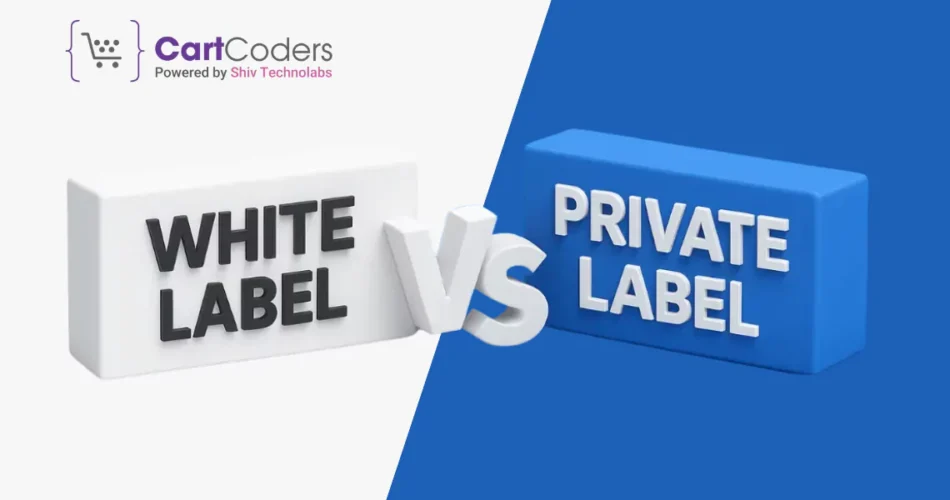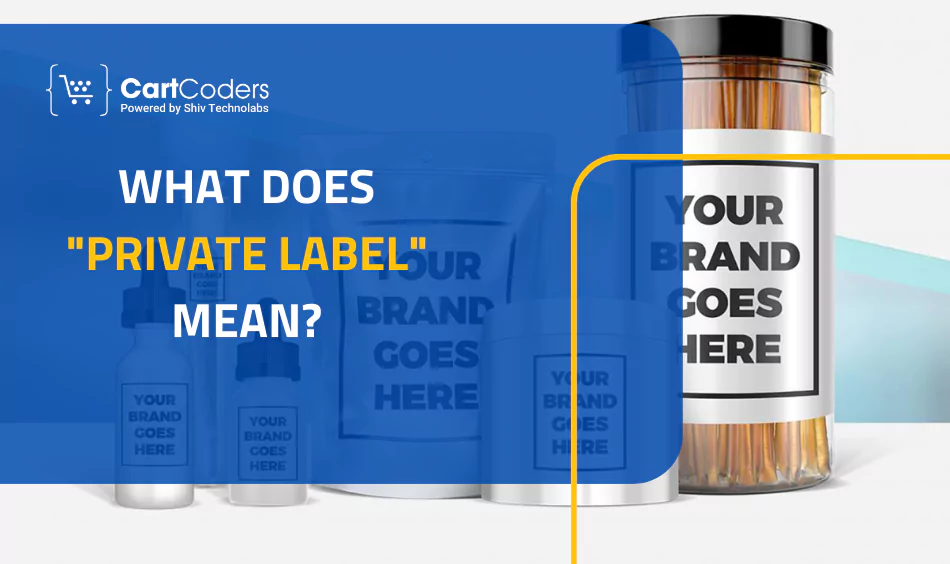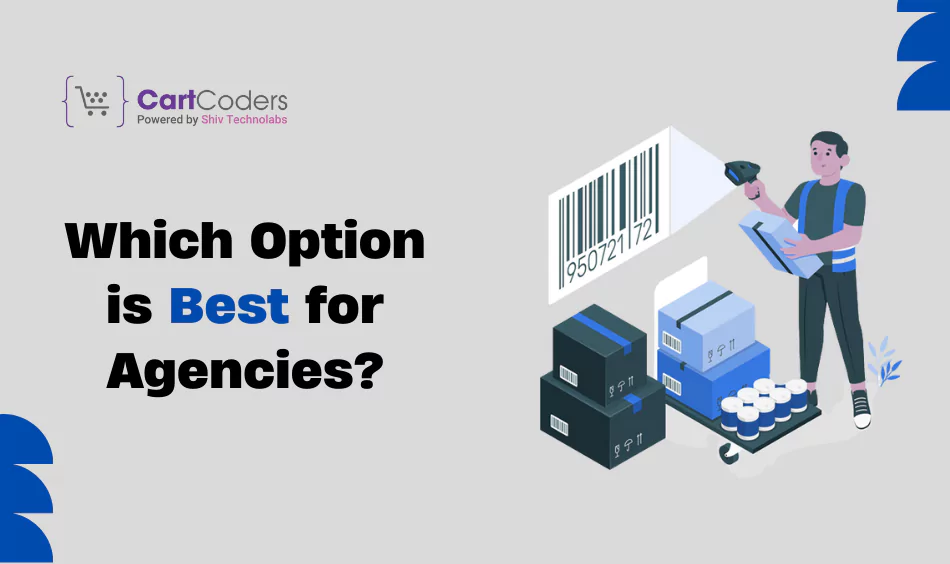Custom Engagement Solutions
Unlock tailored solutions with a free, no-obligation strategy session.
Expert Developers & Engineers on Demand
Scale Your Team with Skilled IT Professionals
Expert Guidance for Digital Transformation

Digital agencies focused on Shopify and eCommerce platforms regularly encounter an important choice: selecting between white label or private label business models. This selection affects their service portfolio and shapes client relationships with their brand. As online commerce continues to expand, making the right decision becomes increasingly critical. Current market data indicates the worldwide eCommerce sector will exceed $5.5 trillion by 2027, meaning agencies that make smart positioning choices today will secure larger portions of this expansion.
Agencies that recruit developers, handle eCommerce projects, or deliver continuous digital support must grasp the white label vs private label comparison. Each approach helps businesses grow their offerings, expand operations, and win new clients, though the best option varies based on financial resources, brand development plans, and future objectives.
This guide explains both models, examines their benefits and drawbacks, and shows why agencies focusing on Shopify need to choose carefully.
“White label” describes services or products developed by one business but renamed and sold by another company using their brand identity. For Shopify development, agencies can create solutions like apps, SEO improvements, or theme changes tailored to each client and offer them under their own brand.
The process works straightforwardly for agencies:
This system lets agencies add new services without recruiting expert staff or making large investments in fresh resources.
Standard white label products for Shopify include:
For newer agencies or small businesses, white label Shopify agency relationships provide quick and budget-friendly growth opportunities.

Private label refers to products or services made by one company but sold under another business’s brand name. Unlike white label, where identical services are provided to multiple agencies, private label products are exclusive to the purchasing agency or company.
Control represents the main difference. With white label Shopify agency partnerships, branding stays limited while ownership belongs to the provider. For private label Shopify stores or services, agencies get complete branding power, total customization options, and intellectual property rights.
Private label products for Shopify could include:
Agencies choosing private label get better market differentiation but accept higher costs and greater responsibilities.
Both models help agencies grow, but the white label vs private label products comparison shows major distinctions.
White labelling allows companies to brand, package, and market their products, but the basic products remain the same among sellers. This way, it’s harder to be unique and compete in busy markets.
Private label products provide total creative freedom. Everything from features and functions to design and labeling can match the brand’s character. This deeper personalization creates exclusivity, builds customer trust, and strengthens brand recognition over time.
White labeling needs smaller investments since manufacturers already built the products. Companies mostly pay for branding, packaging, and marketing, making it perfect for startups or businesses trying new areas.
Private labeling requires bigger financial commitments because it often includes product creation, special manufacturing, and quality checks.
Although costs are higher, private labelling can yield better profit margins and help your business thrive.
White label products come ready-made, letting businesses start selling quickly, sometimes in just weeks. This speed works well for brands wanting to catch short-term demand or new trends.
Private label products need much more time to launch. The time it takes to go from concept development to the final product can be very lengthy and may take months.
White labeling gives little to no product ownership. Many brands often sell identical items, with only packaging and logos making them different. This lack of uniqueness makes building strong competitive advantages difficult.
Private label arrangements offer more intellectual property control. Products get made specifically for one brand, providing exclusivity and protection from direct copying.
| Aspect | White Label | Private Label |
| Branding | Limited customization | Full branding control |
| Investment | Low to moderate | High initial cost |
| Time-to-Market | Quick | Longer due to production |
| IP Ownership | Provider retains rights | Full ownership by agency |
Below are pros and cons of White Label for Agencies:
Below are must-know pros and cons of private label for agencies

Agency decisions should reflect their size, available resources, and business strategies.
White label works better because it lowers financial risks, enables faster growth, and requires fewer staff members.
Combining white label and private label can succeed, using white label for quick scaling and private label for specialized, branded offerings.
Private label products for Shopify create lasting differentiation. Still, many agencies also rely on white label Shopify agency partnerships for faster expansion.
Decision-making guidelines:
Strategic planning drives choices, but expenses play a major role for agencies.
White label: Quicker returns since agencies can start reselling services right away.
Private label: Better long-term profits for agencies creating exclusive solutions.
| Model | Initial Setup Cost | Maintenance Cost |
| White Label | $500 – $5,000 | Low ongoing fees |
| Private Label | $10,000 – $50,000+ | Higher maintenance cost |
Comparing white label vs private label Shopify approaches show that no universal solution exists. White label is quick, with mass expansion capability and cost-efficient, hence favorable to smaller agencies or fast-growing organizations. Private label offers complete control, exclusivity, and more brand identity; however, the risks are higher, and the development takes longer. The correct choice matches agency objectives, client needs, and budget limits.
Agencies wanting smart growth often find success with the right Shopify white label partner. CartCoders fills this role perfectly. As a reliable white label Shopify agency, CartCoders provides scalable, quality Shopify development, app integrations, and eCommerce solutions for agencies globally. Whether you run a startup seeking rapid growth or an established company wanting long-term brand solutions, CartCoders offers the best solution for your business to lead in the digital world.
For agencies looking to scale, CartCoders is the ultimate gateway.
Projects delivered in 15+ industries.
95% retention rate, building lasting partnerships.
Serving clients across 25+ countries.
60+ pros | 10+ years of experience.